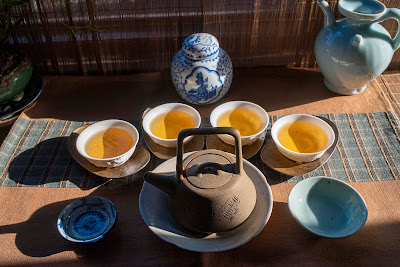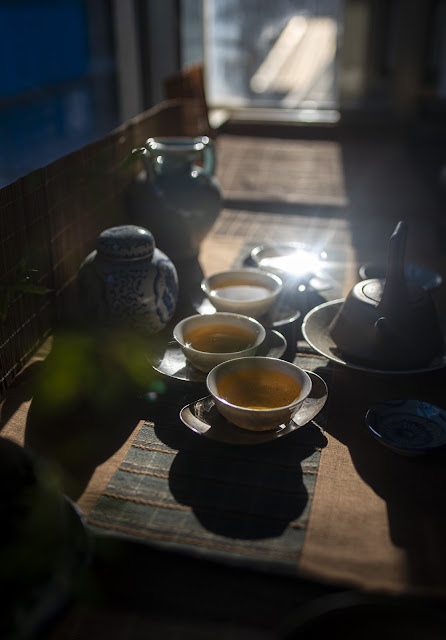How do we learn about tea? Mostly through imitation. This process is also named 'mimetic'. We observe how a more experienced person is brewing and we then try to imitate what we saw. We do this instinctively, because that's how we have learned to speak, to walk, to dress, to write... Even the greatest artists start their career with a phase of imitation. We can think of Picasso or Gu Jing Zhou, the most famous maker of Yixing teapots.
René Girard, a French thinker, has based his understanding of man and society on this concept of imitation. According to him, even our desires are mimetic. We desire what others have. When a child sees his brother or sister play with a certain toy, then he will want this toy very much, especially if the other child isn't sharing it. There may be other toys in the room, but it's always the one in play that raises the most desire, because we imitate the desires of others.
Desire breeds desire. The more a certain object or artist or politician is popular and liked, the more popular he becomes. When we observe such a phenomenon, we observe mimetic desire.I realize that the mimetic process is also very much at work in my own tea way. Finding and following a tea master for over 20 years is indeed a very important part of my tea education. I was lucky to have stumbled upon a teacher who had so much knowledge, wrote tens of tea books and who is so interested in researching all aspects of tea.
How well one imitates and learns from a master depends on the student. The fact that I made quick progress and that I enjoyed the taste of great teas served as a strong motivator. However, the mimetic desire also plays an important part in my study. As a student, I wished to enjoy the same teas with the same wares in the same manner as my tea master! For a while, I had trouble enjoying teas that were not sanctioned, recommended (ie desired) by my teacher. And for some wares that he uses and recommends, I still feel that it's difficult not to desire them! This is a human weakness!As for resisting the power of mimetic desire, I feel that most fans of Gongfu Cha in the West have already shown a very independent mindset in developing a taste for a technique that is very little known. It's so much easier to learn about wine if you are French, about beer if you are German and coffee if you are American! My interest for Oolong started when my soon to be Taiwanese brother in law brewed high mountain Oolong tea for me for the first time! I immediately wanted to imitate him and enjoy the fresh energy of such Oolong leaves! I'm glad the mimetic desire brought me so far!

















No comments:
Post a Comment